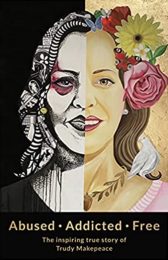 For several years I had the privilege of chairing a remarkable ministry, Beloved, in Bristol which seeks to bring women out of the massage parlours ie to exit indoor prostitution. For obvious reasons it was never possible for me to experience a visit to one of the parlours so I was greatly challenged when a few of the women shared their experience at an ‘away day’ with the trustees. These beautiful women told us what it was like to be lined up for a man to choose one, as in a cattle market. And of the competition they had among themselves to get ‘business’ since that represented their only income.
For several years I had the privilege of chairing a remarkable ministry, Beloved, in Bristol which seeks to bring women out of the massage parlours ie to exit indoor prostitution. For obvious reasons it was never possible for me to experience a visit to one of the parlours so I was greatly challenged when a few of the women shared their experience at an ‘away day’ with the trustees. These beautiful women told us what it was like to be lined up for a man to choose one, as in a cattle market. And of the competition they had among themselves to get ‘business’ since that represented their only income.
There were many stories that brought us all, particularly the men in the room, to a stunned silence and tears. Some of the female trustees had been on visits to parlours so they were ‘fore-armed’, but they too were deeply impacted. This was so far out of our comfort zone that we could not handle our emotions.
With this in mind I was particularly interested to read this recently-published blog Church enough? on the Jubilee+ website. Abi Flavell, who is on the leadership team of a church in Hull, eloquently describes a day of listening to people with ‘lived experience’, those who have been deeply in need in some area of poverty or deprivation, or who have been caught up in an addiction. Others may have spent time in prison. She describes how she and others in the church have sought to reach out to and help such people, but found herself asking whether they had done enough. This is part of the ‘Voices’ initiative by Jubilee+, intentionally listening to those who ‘have been there’. A report with recommendations will be published in the next few weeks.
Impacting the church – a challenge
 In one of the last chapters of Natalie Williams’ and Paul Brown’s excellent book ‘Invisible Divides’ the authors challenge church leaders about their pre-conceptions concerning the qualifications of leadership. They particularly emphasise the lack of leaders in most churches who have ‘lived experience’, as alluded to above, favouring those with theological degrees. Personally, I have worked with brilliant leaders in the Global South who are not even literate! Academic qualifications are not among the Biblical non-negotiables for leadership.
In one of the last chapters of Natalie Williams’ and Paul Brown’s excellent book ‘Invisible Divides’ the authors challenge church leaders about their pre-conceptions concerning the qualifications of leadership. They particularly emphasise the lack of leaders in most churches who have ‘lived experience’, as alluded to above, favouring those with theological degrees. Personally, I have worked with brilliant leaders in the Global South who are not even literate! Academic qualifications are not among the Biblical non-negotiables for leadership.
Do we need to listen intentionally to those we are seeking to reach and identify some who could be developed as leaders who really do understand a sector of society most of us are ill-equipped to reach? I was always thrilled to hear of women who, through Beloved, had left prostitution having found Jesus and had become integrated into a local church. Surely it was for such as these that He came!
It can be done. Meet Trudy
 It was my privilege to have one such woman on the board of trustees, Trudy Makepiece. She had lived in drug addiction, prostitution and poverty for many years but having met Jesus was well discipled and is now a minister in the Elim denomination. You can read her story in Abused, Addicted, Free. May we see many more Trudys come to faith and influence in the church. I think that would please God’s heart!
It was my privilege to have one such woman on the board of trustees, Trudy Makepiece. She had lived in drug addiction, prostitution and poverty for many years but having met Jesus was well discipled and is now a minister in the Elim denomination. You can read her story in Abused, Addicted, Free. May we see many more Trudys come to faith and influence in the church. I think that would please God’s heart!
Challenge
I challenge leaders of churches to think in depth about how effectively you are reaching such people, not just with love and compassion, important as that is, but to help them reach their full potential in God. Be pro-active in listening to those who know what they are talking about through personal, often bitter, experience.
